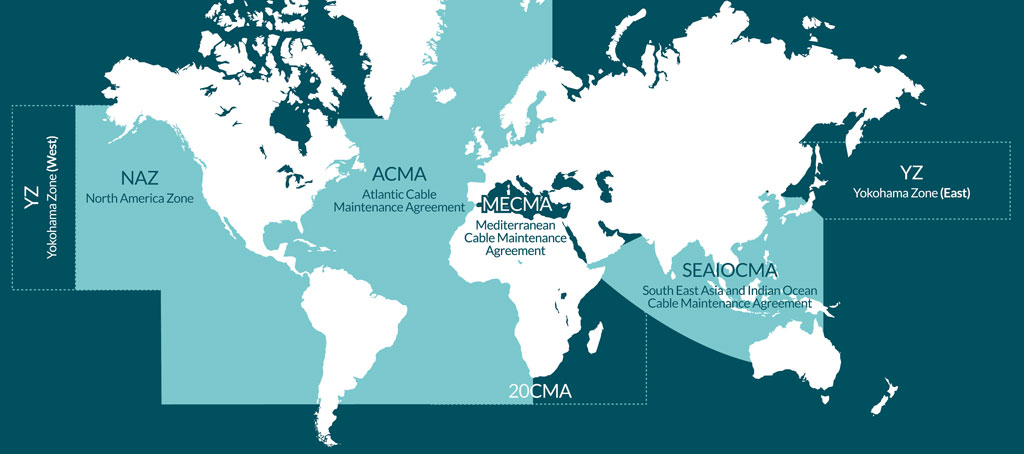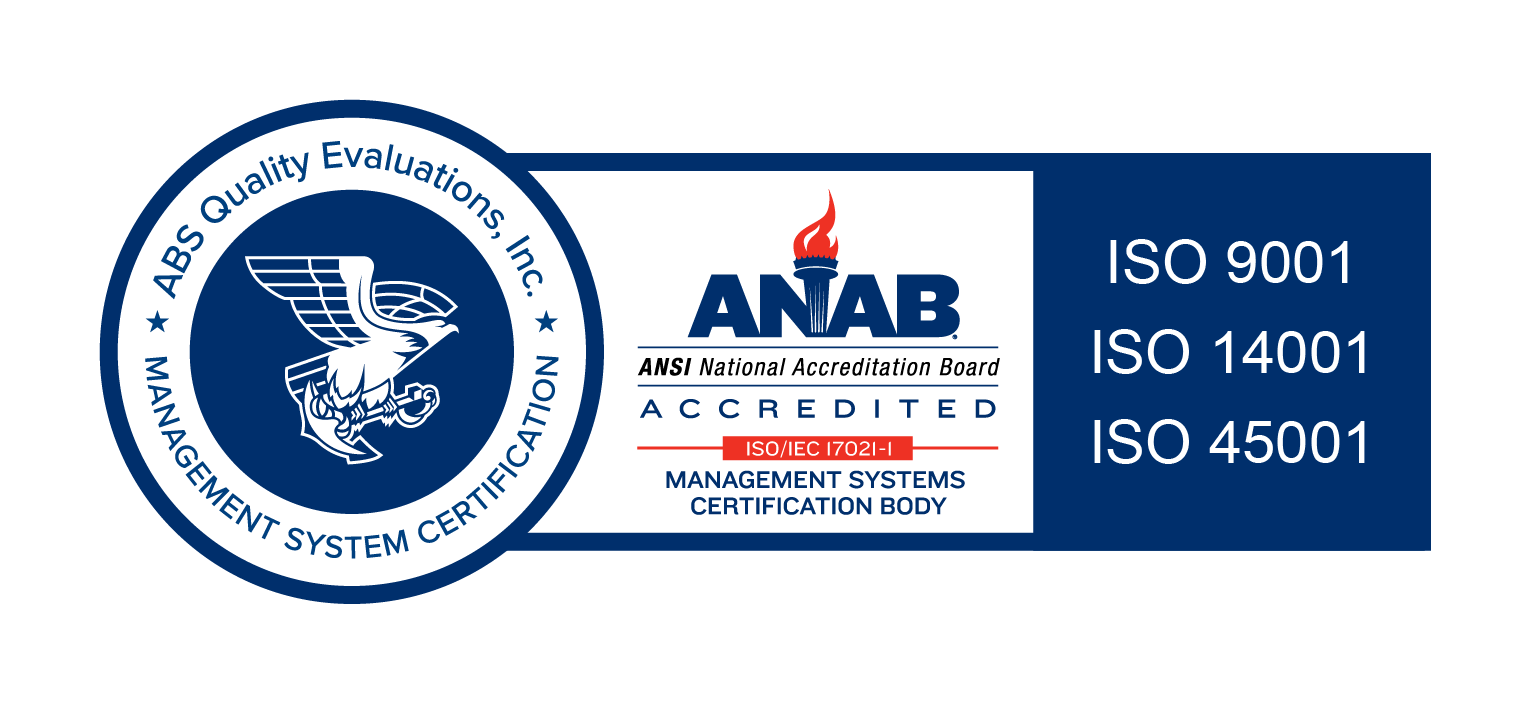Contact Us

At Global Marine we provide submarine telecom cable maintenance services to around 120 maintenance authorities around the globe, with the primary aim of keeping our customers subsea fibre optic cable systems fully operational.
Global Marine has unrivalled expertise and experience as well as an exceptional knowledge base with a commitment to advancing technological solutions, which means that we are a trusted and reliable partner of choice for organisations wanting to maximise the return on their cable system investment.
It is our main objective to ensure that system downtime is minimised and that a broken segment of cable is repaired as quickly as possible, therefore Global Marine tries to mitigate the impact of these incidents by providing maintenance solutions that reflect each zones or customers individual requirements for quality, reliability, responsiveness, dependability, and speed of repair.
Global Marine consistently achieved 99.4% of the contractual KPIs established in the three zone maintenance agreements where it provides contractual services. In addition to zone, we can offer tailored maintenance models, based on budget and service requirements, but at the present time our key service offerings are zone focused.
Main Contractual Key Performance Indicators

Resources
Maintenance Agreements and Consortiums
These services are provided via the zone maintenance agreements: ACMA, NAZ and SEAIOCMA. For these Global Marine provides fully equipped maintenance vessels, ROVs, and highly qualified experts to manage and support all types of cable repairs.

Global Marine has been repairing cables in Asia since the 1930s due to the exceptional service delivered to submarine cable owners in the region. The first SEAIOCMA agreement was signed in 1986, superseding earlier agreements dating back to 1978, which included the 1st SEA-ME–WE cable (coaxial) linking Singapore to Medan, Colombo and Djibouti. The SEAIOCMA agreement covers longitudes from Djibouti to Guam, and latitudes from Taiwan to Australia, covering an area of approximately one-third of the earth’s oceans.
The Cable Retriever is dedicated to SEAIOCMA and it is based at Subic Bay in the Philippines, where Global Marine also owns and operates the Subic Cable Depot. The maintenance vessel and the ROV XT 601 is available to its members 365 days per year on a call-out basis under strict KPIs (Key Performance Indicators). Due to the vessel being berthed alongside Global Marine’s cable depot in Subic port – where the members’ submersible spare plant is stored under permanently monitored conditions as per manufacturer specifications – mobilizations can be undertaken very rapidly, within 24 hours from call-out.
Besides cable repair operations, Global Marine’s maintenance vessel and ROV can also undertake submarine cable maintenance and improvement works including marine surveys, burial assessment and ROV burial. Subject to the Agreement Maintenance Authorities approval Global Marine, can also undertake third party installation works.
The NAZ agreement is a non-profit cooperative agreement, run by the members for the members. Its primary purpose is submarine cable repairs. This maintenance zone agreement covers submarine systems in latitudes from the Bering Sea and Alaska in the North, to the Equator in the South, and longitudes from the West Americas to approximately 167º West Longitude.
The Cable Innovator and the ROV ST205 are available to the NAZ members 365 days per year on a call-out basis under strict KPIs (Key Performance Indicators), which include mobilization within 24 hours from call-out. Besides the maintenance vessel and ROV, Global Marine also provides submersible spare plant storage services through its depot located in Victoria, British Columbia, Canada.
Besides cable repair operations, Global Marine’s maintenance vessel and ROV can also (via the agreement) undertake operations for submarine cable maintenance and improvement works, marine surveys, ROV burial and selective Out Side Work tasks as approved by the Management Committee. The agreement also includes other services that include charting/documentation management, offshore liaison, fault location, UJ jointing services, shallow water repairs and land cable repairs. The latter two services are subject to quotation.
The ACMA agreement is a non-profit cooperative agreement, run by the members for the members. Its only purpose is submarine cable repairs. ACMA’s sole purpose is for the cable repair and maintenance of systems in the North and South Atlantic, English Channel, North Sea, Caribbean Sea and South East Pacific. The agreement also includes submersible spare plant storage services in depots located in Portland (UK), Brest (France), Bermuda and Tenerife (Spain).
Other services available include charting/documentation management, offshore liaison, fault location, UJ jointing services, shallow water repairs and land cable repairs. The latter two services are subject to quotation.
Besides cable repair operations, Global Marine’s maintenance vessels and ROVs can also (via the agreement) undertake operations for submarine cable maintenance and improvement works, marine surveys and ROV burial. The Western base vessel can also undertake selective Out Side Work tasks as approved by the Management Committee.
The Wave Sentinel with the ROV Atlas 1 and the C.S. Sovereign with ROV Atlas 2 are dedicated to ACMA 365 days per year on a full call-out basis.
The Wave Sentinel is stationed in Curacao, alongside the submersible spare plant depot. The Sovereign is based in Portland, UK, alongside Global Marine’s submersible spare plant depot.
For more information please visit the ACMA website in https://www.acma2017.com
The PIOCMA agreement comprises NAZ, Yokohama Zone and SEAIOCMA agreements. The agreement provides mutual support when natural disasters occur, providing an additional layer regarding the risk management solutions available to these agreements’ members.
The last time PIOCMA was invoked, was during 2006 Taiwan earthquake, that resulted in a dramatic speed reduction of internet traffic due to simultaneous faults in several cables. More recently PIOCMA was on alert following the Japanese Tsunami in 2011 although it was not called upon.
